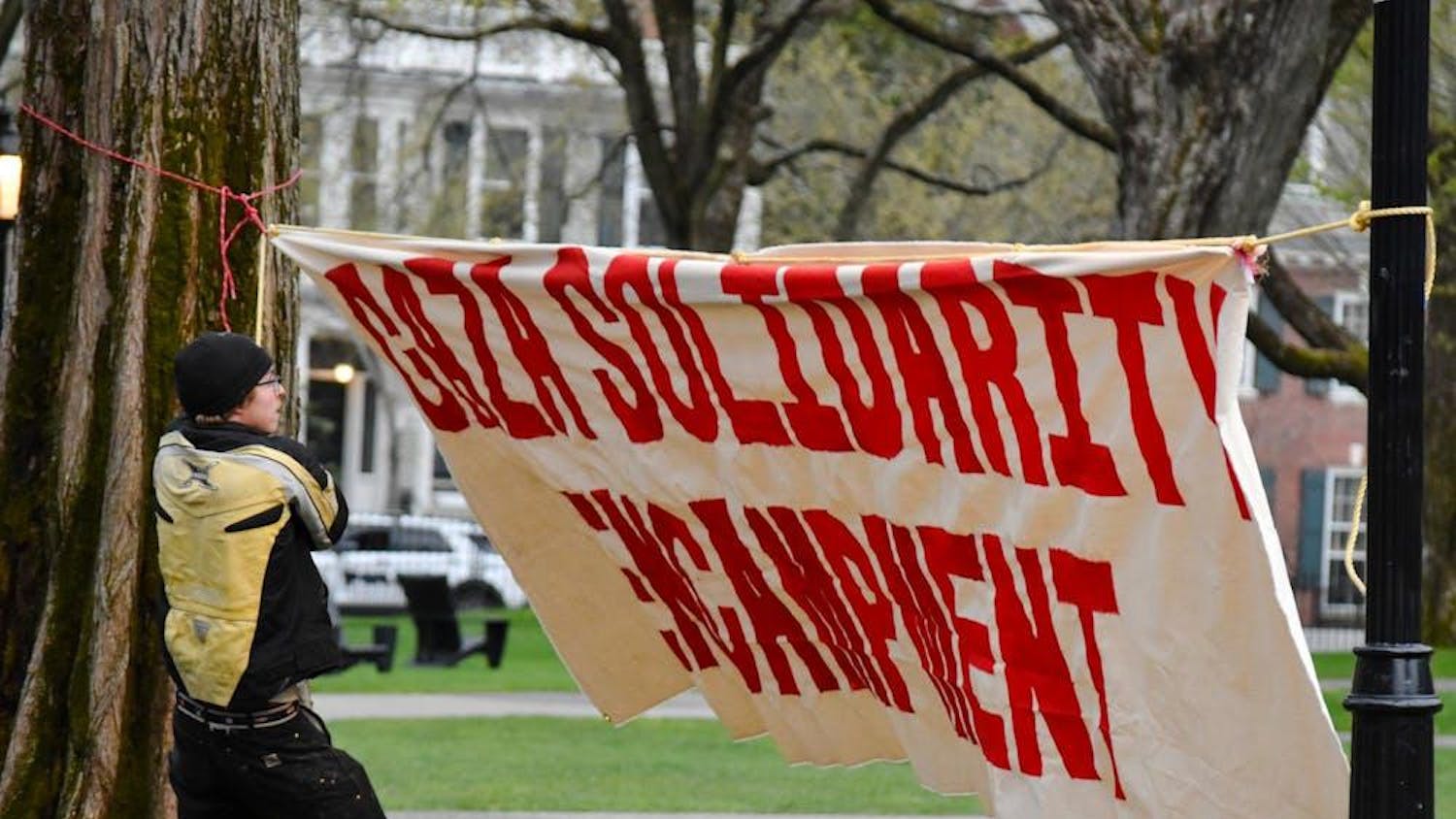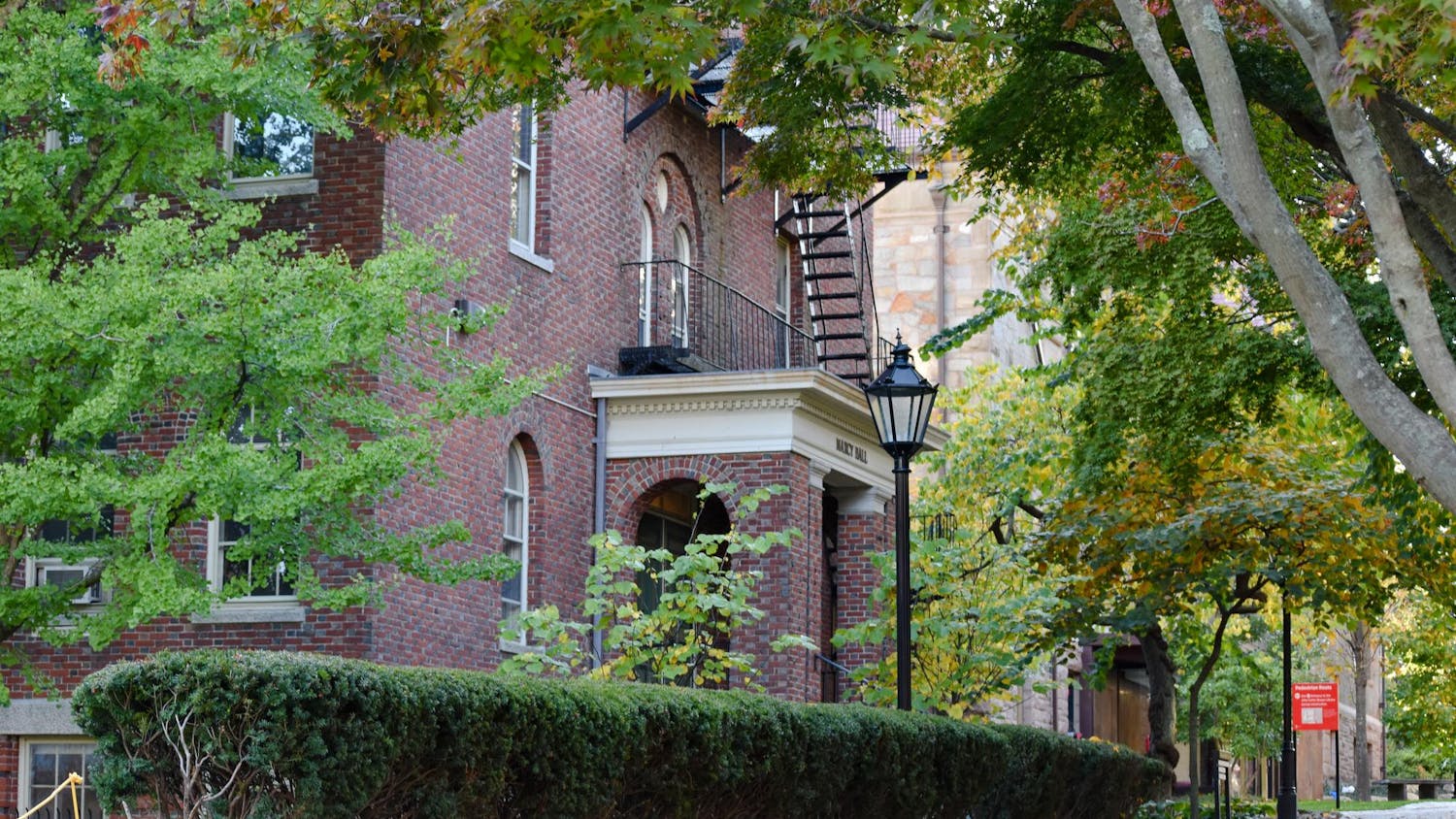When Provost David Kertzer '69 P'95 P'98 steps down from his post June 30, his five-year term as the University's second-ranking administrator will draw to a close, though he will remain on the faculty as a professor. He leaves after a term marked by a national financial crisis, a heated tenure debate and a renewed interest in his own activist past as the University revisits its relationship with the Reserve Officers' Training Corps.
As as undergraduate, Kertzer was one of the most vocal members of the Campus Action Council — an activist organization founded in 1966 and a successor to Students for a Democratic Society and other radical student groups — and served on its executive board during his senior year.
He actively protested the Vietnam War and fought for civil rights, said Robert Cohen Jr. '68 P'13, a college friend of Kertzer's and fellow campus activist.
But despite his past, Cohen said he was not surprised Kertzer returned to Brown as a faculty member. "David was a scholarly kind of guy," he said.
When Kertzer came back to the University to teach in 1992, not many people remembered or remarked upon his political past, he said. Twenty-three years had passed, and Brown was a very different place.
Kertzer was a professor of social science, anthropology and Italian studies before taking on his current position as provost in 2006. He remains on the faculty — though his duties as provost do not allow him the time for classroom teaching, he said he has continued to serve as a first-year and sophomore adviser.
Recently, the resurgence of the debate about allowing ROTC back on campus has brought about renewed discussion of Kertzer's activist past. As a student, he was a leader in the fight to get ROTC off campus.
But he has mostly stayed out of the current debate. "It was another epoch, and those were different times," he said. "Obviously, as provost that hasn't been my task."
Though his academic career was rooted in the humanities, Kertzer said some of his biggest accomplishments as provost were expansions in the sciences. He spearheaded the task of combining the Cognitive and Linguistic Sciences and Psychology departments into one program — the Department of Cognitive, Linguistic and Psychological Sciences. Accompanying the project was the renovation to the Metcalf Chemistry and Research Laboratory, a renovated site that will provide a home for the CLPS department when it opens next year.
Another major accomplishment stemmed from unlikely circumstances. Like most of the academic world, Kertzer was surprised by and unprepared for the 2009 financial crisis. "All our models were ‘keep expanding,'" he said. But after the University — along with many of its peers — lost 25 percent of its endowment, he had to devise a new plan.
"A good part of my middle years as provost were spent trying to protect the academic programs and the student experience," he said.
In the midst of the economic downturn, Kertzer was "able to stay focused on key academic priorities," said Richard Spies, executive vice president for planning and senior adviser to the president. "He insisted that what needed to be done be done with the right standards," Spies added.
Throughout the process of deciding what could and must be cut, Kertzer remained conscious of the fact that "it wasn't just a decision to be made for the moment. It was a decision for the future," said Arthur Matuszewski '11, who served with him on the University Resources Committee, a committee chaired by Kertzer and tasked with recommending the University's annual budget.
Another more controversial hallmark of Kertzer's final year as provost was the introduction of new standards for faculty tenure. At the heart of the issue was the fact that the University has a substantially higher rate of approving faculty tenure than peer institutions. So Kertzer, following a recommendation from the Corporation, proposed a new time line for the tenure process that would add a year to the probationary period for assistant faculty members while beginning the review period a year earlier.
Kertzer cited faculty quality as one of his priorities during his years as provost. Students "want to study with some of the great scholars in the field," he said.
But the response from the faculty to Kertzer's proposal was mixed.
"We had very different visions of what the problem is," said Cynthia Garcia Coll, chair of the Faculty Executive Committee and professor of education, adding that she views a high tenure rate as a positive.
"He represents the Corporation. There are going to be places where you're going to clash," she said.
"I give David enormous credit" for raising the issue of revisions to the tenure plan, Spies said. "The process by which faculty are appointed and promoted and supported is the most important thing we do."
On July 1, Mark Schlissel P'15, dean of biological sciences at the University of California at Berkeley, will officially take over Kertzer's duties as provost. "From my point of view, there's a value in passing the torch, to let someone with new ideas look at things," Kertzer said.
Schlissel's experience at Berkeley will help him adapt well to his new role, Coll said. Brown and Berkeley "are both institutions that have thought and acted outside the box. I'm hoping that vision will prevail here," she said.
Kertzer said he plans to go back to teaching, but his immediate next step will be a year-long sabbatical, during which he will go to Italy and work on his latest book. "I think of myself first and foremost as a scholar and teacher and a writer," he said. "I just need to get back to my writing."




